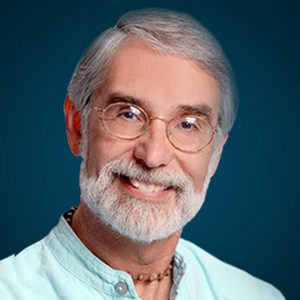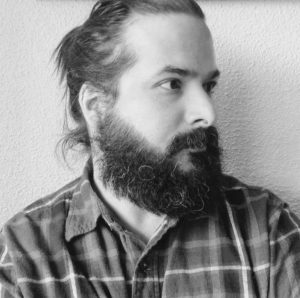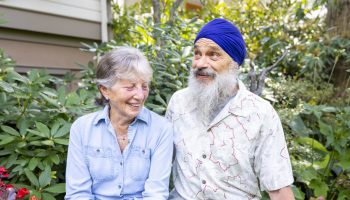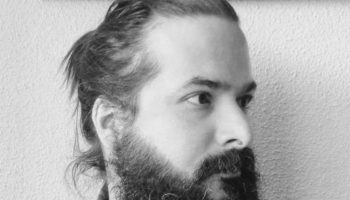
This week’s Mystic Heart meditation sessions will be led by David Gluck, teaching Hindu and yoga-based meditation, and Larry Terkel, teaching Kabbalah.
The Mystic Heart Meditation Program is an initiative of the Department of Religion designed to teach Chautauquans about the world’s different meditation traditions. Gluck’s sessions will be from 8:15 to 9 a.m. Monday, August 13, through Friday, August 17, in the Presbyterian House Chapel. Terkel’s sessions will be from 7:15 to 8 a.m. Monday through Friday in the Presbyterian House Chapel, with additional lecture sessions from 12:30 to 1:55 p.m. Tuesday, August 14, and Thursday, August 16, in the Hall of Missions.
Gluck began his study and practice of yoga and dharma in 2001. In 2003, he became a certified Jivamukti Yoga teacher, studying directly under Sharon Gannon and David Life. He has worked professionally as a teacher of yoga and dharma since that time and has taught and led retreats both nationally and abroad.

According to Gluck, Hindu meditation practices are derived from the culture of the Indus Valley and are “woven into the very fabric of the culture.”
“Eastern systems have always believed that there are energies in the body and that we have the ability to tap into them through practices like meditation,” he said. “I do believe this is true.”
In Gluck’s sessions, he will cover five aspects of Hindu meditation. Japa is the repetition of a mantra — a syllable, word or words repeated over and over to generate focus and stillness of the mind. Bija is the practice of experiencing the sensations associated with each chakra and using them to become aware of the subtle energetics and healing capacity of the body. Pranayama, or deep breath and energy practice, is linked to meditation. Nada Yoga is the use of sound to delve deeply into the energetics of the body. Lastly, Sushumna nadi focuses on breathing and quiet meditation with visualization of the body’s central energy channel.
Gluck said in teaching these five aspects, he follows a “show, don’t tell” style of teaching and focuses on experiential practice, rather than lecture. Although a majority of Japa practitioners practice Hindu meditation with tools such as mandalas or candles or other visualizations, Gluck’s preferred method is mantra.
Instructions are given at the beginning of the session, the practice follows, and there will be time for questions at the end. Gluck asked that first-time meditators come prepared to “just be” in order to get the most benefits from the sessions.
“If you are just starting out with these things, start on a really broad basis,” he said. “Just bring your mind to (one) part of the body, and just let yourself hang out there, and feel anything that is happening. Don’t conjure anything up. Do not worry if you don’t feel anything, just hang out there. I think that part is very relaxing.”
Gluck said it is important to go inward so one can focus on the object of their meditation, such as breathwork.
“Ultimately, the mind becomes so still, so unwavering, that you move into a state where there is a final dissolution to being my subjective state, me, and the objective state, or the object,” he said. “Both dissolve and there is simply the experience.”
Even after years of teaching and growing in his craft, Gluck said the effects of meditation still leave him speechless.
“There are no real words you can use for this experience,” he said. “It breaks down the conventions of how language works. The experience becomes out of time, out of ego construct and incredibly euphoric. The only way you can get to this state is if nothing is disturbing your mind. Can you imagine if there was absolutely nothing disturbing your mind? The Buddhists call that ‘nirvana,’ a complete state of peace.”
Week Eight’s other Mystic Heart leader, Terkel, first learned how to meditate with his wife, Susan, as students at Cornell University in 1969. Without fail, he has meditated every single day for the past 48 years.
“I just knew it was something I needed to do, something that would help me lead a healthier, happier and more productive life,” Terkel said on his website. “I sit before you as testimony to the fact that meditation works, that it has done all of those things for me and more. We can’t imagine a day without meditation.”
Terkel started teaching during a yearlong excursion to India, where he accompanied Swami Satchidananda, founder of Integral Yoga, from 1970 to 1971. When he returned to the United States, he began teaching yoga and meditation in Hudson, Ohio, where he founded the Spiritual Life Society in 1978 with his wife.
Although he teaches a variety of meditation techniques that relate to his Judeo-Christian heritage, Terkel will focus on Kabbalah, a mystical Jewish tradition, while at Chautauqua.
The tradition originated in the Torah, which contains many stories of mystical experiences, from visitations by angels to prophetic dreams and visions to wandering souls and reincarnation. The mystical school of thought came to be known as Kabbalah, meaning “to receive or accept tradition.”
Unlike most meditation practices, participants have to be engaged in thought for the entirety of Terkel’s sessions. Terkel said on his website that is exactly the point of his all of his teachings.
“You do not have to calm your mind to meditate,” he said. “If you can already calm your mind, why learn how to meditate? It is the meditation technique that works to make your mind calmer. Note, I didn’t say perfectly calm. Calmer is the goal here.”
Terkel has achieved the status of an E-RYT 500, the highest certification given by the Yoga Alliance. In addition to meditation, Terkel is a licensed minister. He is also the co-author of the book, Small Change: It’s the LITTLE Things in Life That Make a BIG Difference!. Terkel currently teaches comparative religions in Kent State University’s philosophy department.




